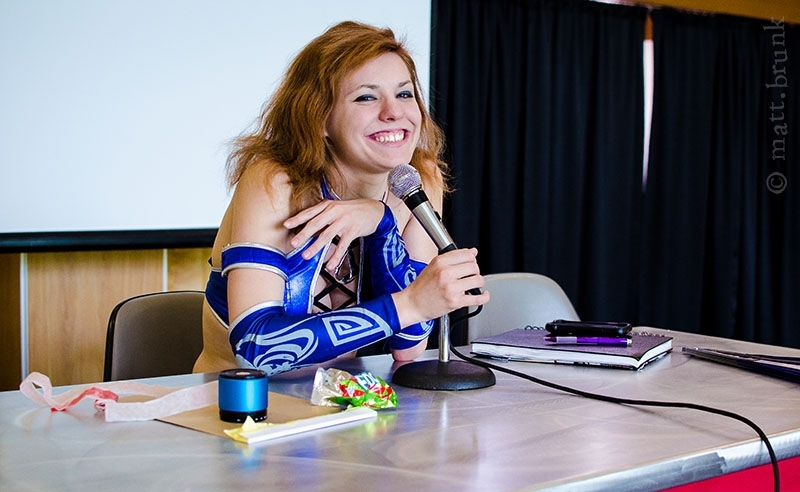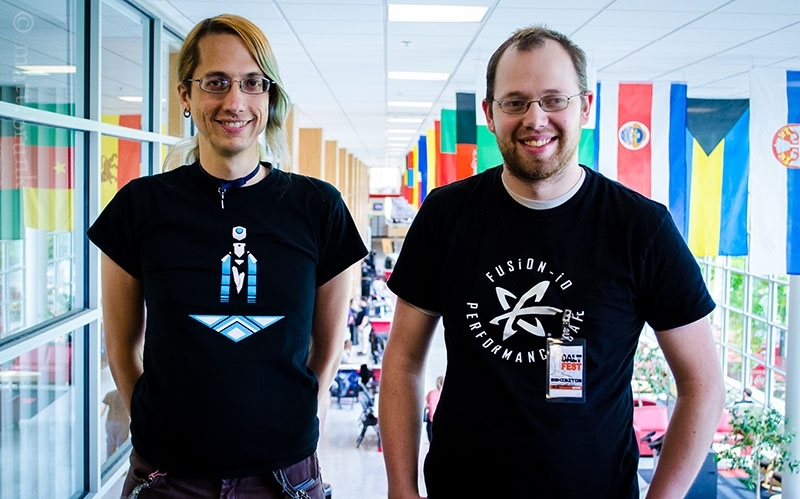Salt Fest 2014: Day Two
Events
After the conversation started to wind down, Matt and I left the room to chat with the Tripleslash Studios team again. Hurst and Ashlynn were packing up their equipment, but they gave us a chance to ask them about their experience as indie game developers. “The thing that makes video game development in general–and especially indie game development–exciting, is that there’s all kinds of different people that you interact with every day,” says Ashlynn. “There’s also all kinds of different hats you have to wear. I’m a coder, but I’m also the businessperson. Dave is a coder, but he also does our taxes… It’s neat that every day I’m working on the project, I’m doing something different.”
Hurst chimed in, explaining that, “the number one way to become a game designer is to design games. There are so many tools that are available right now.” He contends that with the lively community of modders and indie game developers, one can easily pick up a free program and learn the basics online, making it easier now than ever to make your game idea a reality. Ashlynn compares game development to being in a band. “There’s a reason that a lot of people’s first band is punk or garage pop. Pick something simple, and freaking do it!”
In closing, they also mentioned a number of groups that exist to help indie developers refine their ideas and get input from other developers in their community. Groups like Utah Indie Games Night meet periodically to play-test and critique new games, and their more seasoned members often run panels to discuss new technologies and techniques for coding and scripting. Both of them agreed that the best way to approach indie game creation is to get started and get involved in the community.
After we talked for a bit, Hurst and Ashlynn had to run off so they could host a panel about beginning Unity 3D Development. However, due to a number of scheduling and positioning mishaps, the panel was summarily canceled, apparently so that a group of four Halo 4 players could play their tournament on the ballroom’s big projector screen. The game’s footage was periodically broken up by two announcers who wordlessly commented on the tournament as it transpired. I say “wordlessly” because we got to see their lips moving, but the audio was being streamed online instead of broadcast to the convention. It seems ironic to me that the convention had to be put on hold so that a group of people who were not at the convention could watch the convention’s major tournament.

